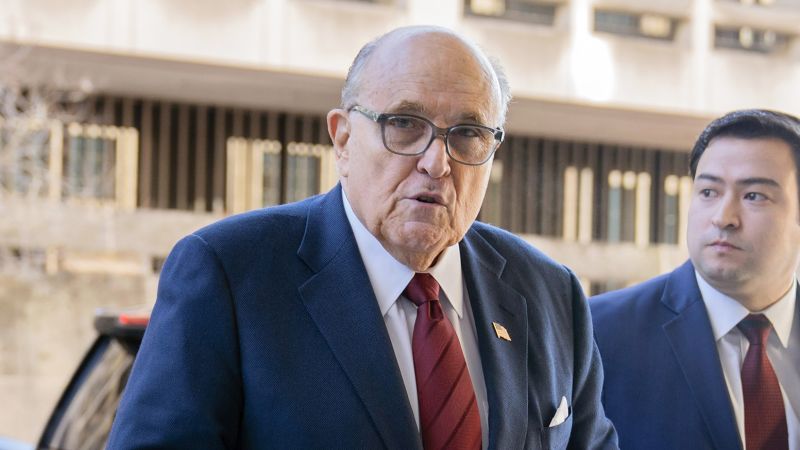Georgia state lawmakers are pushing for a state ruling that has forced some of them to testify during an investigation into whether former President Donald Trump and others illegally attempted to influence the state’s 2020 election.
The State House and Senate on Wednesday passed rules saying that legislative privilege — a legal concept rooted in the U.S. and Georgia constitutions that says lawmakers should not be questioned about legislation-related activities — restricts communications with those outside the legislature. A majority of Republicans voted in favor and most Democrats voted against.
Crucially, language is only part of the legal requirements. It’s not clear if it would stand up in court, and judges across the country typically have limited sweeping claims to legislative privilege.
A Georgia judge ruled last year that lawmakers must testify before a special grand jury in Atlanta about contact with private individuals on Trump-related matters, even if that communication was part of a legal duty.
“We can’t all be experts on every issue that comes before us,” House Majority Leader Chuck Efstration, a Republican from Dacula, said Wednesday during the debate. “We rely on others who have expertise. These communications, designed to help us make these determinations, would be protected.”
But Democrats are wondering if Republicans are trying to cover up evidence from the post-election 2020 era, when some GOP lawmakers presented Trump’s false claims of Georgia election misconduct.
“Are we trying to protect that because of some election issues that came up in elections?” asked Senate Minority Whip Harold Jones II, an Augusta Democrat.
Fulton County Superior Court Judge Robert McBurney ruled in July that lawmakers enjoy broad immunity but could be questioned about their conversations with those outside the legislature. Lawmakers had argued that they should be completely immune from testimony.
At the time of McBurney’s ruling, Fulton County District Attorney Fani Willis said there was evidence that testimony given by Trump attorney Rudy Giuliani and others before the Legislative Committees in December 2020 was “part of a multi-state coordinated.” The Trump campaign’s plan to influence was the results of the November 2020 elections in Georgia and elsewhere.”
Fred Smith, a professor of constitutional law at Emory University in Atlanta, said prosecutors have powers that also need to be respected.
“It is hard to imagine that any state legislation could trump a prosecutor’s ability to carry out his own constitutional responsibilities to the line set out in the Constitution,” Smith said.
McBurney ruled that the grand jury could not ask questions about communications between lawmakers or with members of the legislature, noting that those conversations were immune due to legislative privilege.
But he noted that such immunity “should not be a shield benefiting these outsiders or otherwise obscuring the grand jury the full extent of alleged efforts to undermine Georgia’s elections.”
The special grand jury has now completed its work. McBurney dissolved the panel on Monday and has set a hearing for January 24 to decide whether to release all or part of the report.
Willis must now decide whether to pursue indictments before a regular grand jury against Trump or anyone else. The lengthy investigation was one of several across the country that threatened Trump with legal jeopardy as he made a third bid for the White House.
Democrats also this week questioned a provision that suggests a Georgia lawmaker could bar another lawmaker from testifying if the first lawmaker refused to allow colleagues to speak privately.
“If you and your colleague on your right or left are having a conversation about a law, you have immunity as well as the colleague you’re speaking to,” Senate Majority Leader Steve Gooch, a Republican from Dahlonega, said Monday. “And so you could not divulge the conversation you and she are having without jeopardizing the immunity that this senator also enjoys.”
Because lawmakers are exempt from state open record requirements to create their own written communications, it is likely that written and oral communications will only come out in litigation. Efstration said written communications with law enforcement agencies would still be subject to open record laws.
Both chambers approved the language as part of a larger set of rules routinely passed at the beginning of each biennial session of the Georgia General Assembly.









